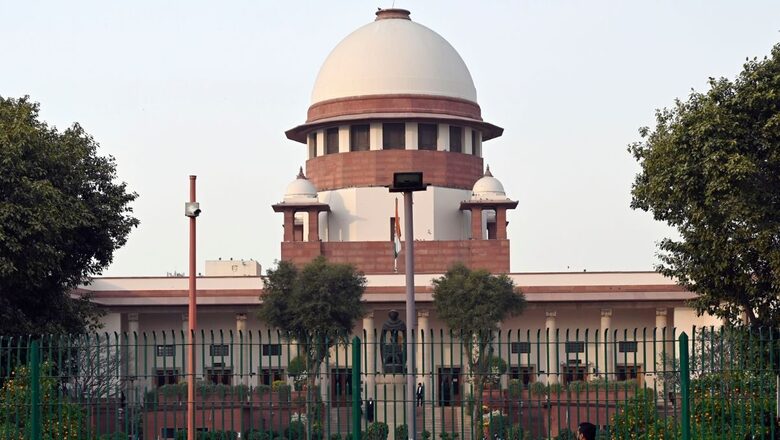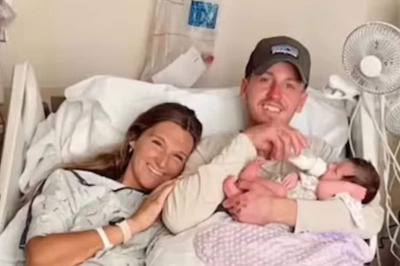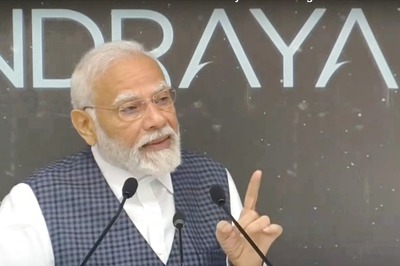
views
The Supreme Court recently acquitted a man in a drug trafficking case, finding that there was absolutely no legal evidence on record to show that the contraband attempted to be transported by another accused by a railway parcel was supplied by the man/appellant or he was involved in participation in any conspiracy for it.
A bench of Justices Abhay S Oka and Augustine George Masih also noted that the Trial Court and High Court had relied upon the appellant Ajay Kumar Gupta’s statement under Section 67 of the NDPS Act, which was not admissible in evidence and could not be read in evidence, in view of the Supreme Court’s judgment in case of Tofan Singh v. State of Tamil Nadu (2021).
“There is no recovery from the appellant of any incriminating material. There is no evidence to show that the contraband tried to be transported by accused no 1 by railway parcel was delivered by or on behalf of the appellant to accused no 1. There is no evidence of any conspiracy against the appellant,” the bench said.
Therefore, the court held the respondent Narcotics Control Bureau had not established the offences punishable under Sections 22(c) (Punishment for contravention in relation to Psychotropic Substances) and 29 (Punishment for abetment and criminal conspiracy) of the NDPS Act against the appellant beyond a reasonable doubt.
In the impugned High Court’s judgment, the court found it had been noted that a statement of the transporter ought to have been recorded to prove that the delivery of consignment containing contraband was made by accused no 3 to the appellant’s shop.
In fact, the person who allegedly transported the contraband from accused no 3 to the appellant was a crucial witness. However, the prosecution has withheld the evidence of this witness from the Court, it said.
“Hence, an adverse inference must be drawn against the prosecution. In the statement of accused no 1, under Section 67 of the NDPS Act, he stated that he purchased Fortwin injections from the appellant and one Arun Singh several times. However, no investigation has been carried out against Arun Singh,” the bench said.
In the facts of the case, the court recorded that the consignment was booked by accused no 1, and therefore, he was found to be transporting the psychotropic substance in contravention of Section 8(c) of the NDPS Act.
“There is no allegation against the appellant of transporting the contraband. The consignment was booked in the name of the accused no 1 as per the prosecution case. Therefore, unless it is proved that the appellant had supplied the consignment to accused no 1 or was a part of a criminal conspiracy to commit an offence under Section 22(c), the appellant cannot be punished,” the bench said.
The evidence of accused no 3, who was examined as a defence witness, showed that he was carrying on the business of M/s Maheshwari Medical in his wife’s name. He stated that he issued invoices for sending Fortwin injections to the appellant.
However, there is no evidence on record to show that accused no 3 procured the contraband that is the subject matter of the prosecution and handed it over to the appellant or accused no 1, the bench said.
The court therefore held the conviction of the appellant could not be sustained and set aside the impugned judgements.
The NCB launched the prosecution in the case on receiving secret information on December 21, 2013. It intercepted Jaswinder Singh who admitted to have consignment of 30 cartons of pentazocine (Fortwin injections) manufactured by Ranbaxy company were found.
His statement was recorded under Section 67 of the NDPS Act. He admitted that he used to purchase medicines from Patna and sell them in Lucknow, Uttar Pradesh. He claimed that he bought Fortwin injections from the appellant-accused no 2 and one Arun Singh on several occasions.
In his statement, the appellant said he ran a medical shop in Katra Market, Govind Mitra Road, Patna, under the name and style of M/s Mangalam Drug Agency. He disclosed that he had a valid licence issued by the Office of Controller of Drugs, Bihar.
He stated that accused no 1 came to his shop and demanded 40 cartons of Fortwin injections. He could provide only 30 cartons against payment of cash.
On trial, the Special Court, Vaishali, Hajipur convicted the appellant and accused nos 1 and 3 for the offences punishable under Section 22(c) and Section 29 of the NDPS Act.
For the offence punishable under Section 22(c), the appellant was sentenced to undergo rigorous imprisonment for 10 years and to pay a fine of Rs 1,00,000.
The conviction of the appellant had been confirmed by the High Court by the impugned judgment.




















Comments
0 comment